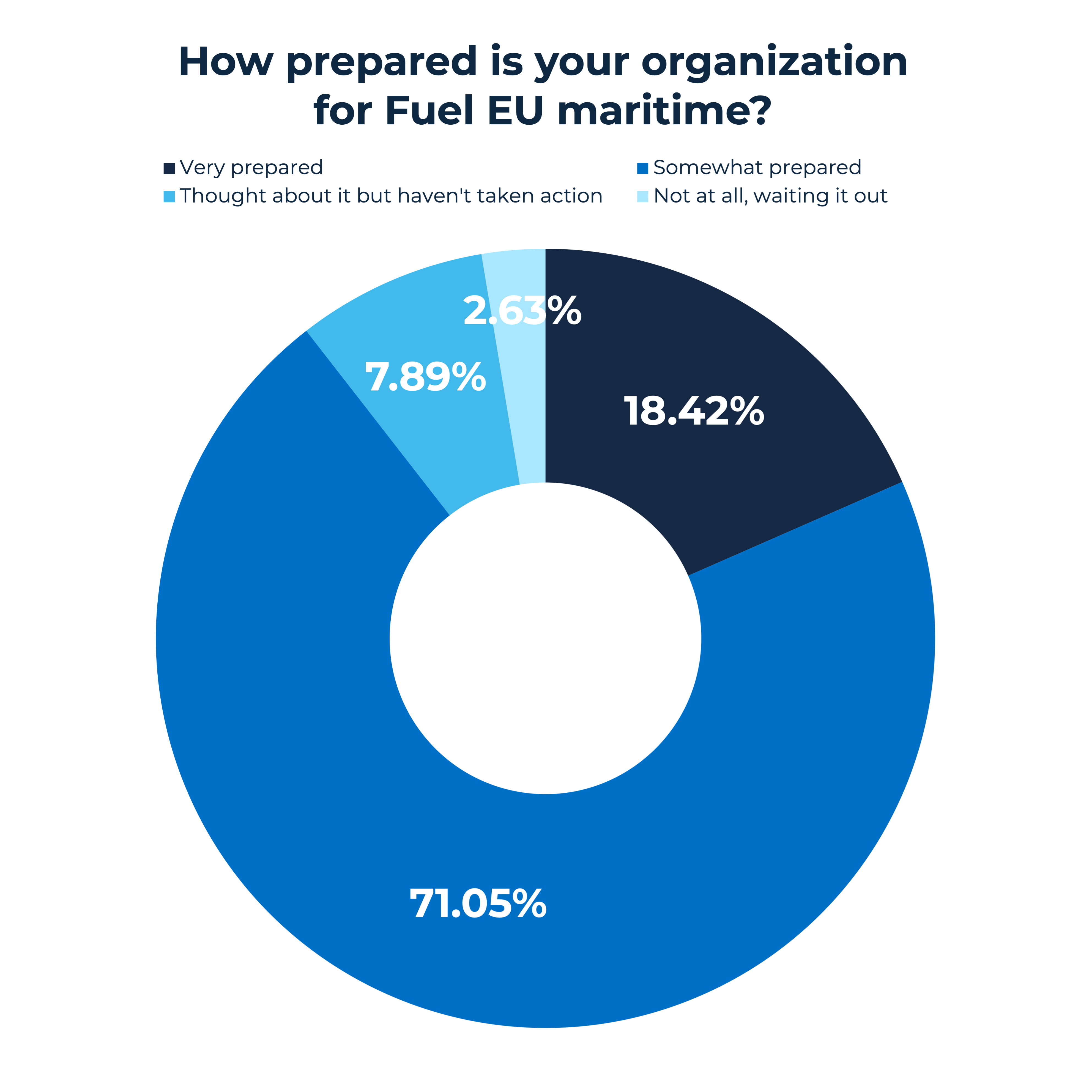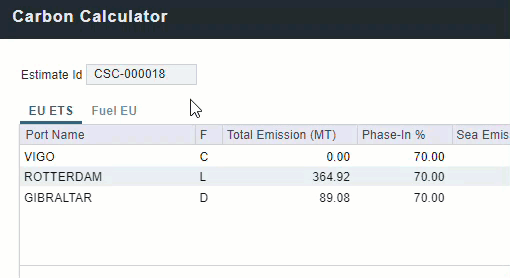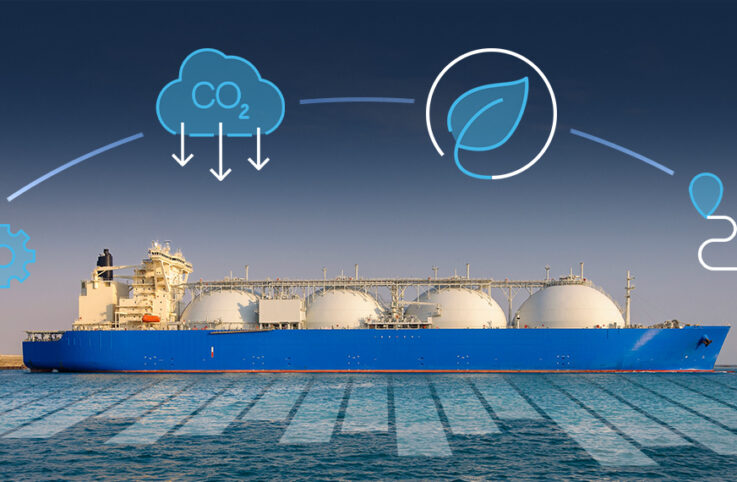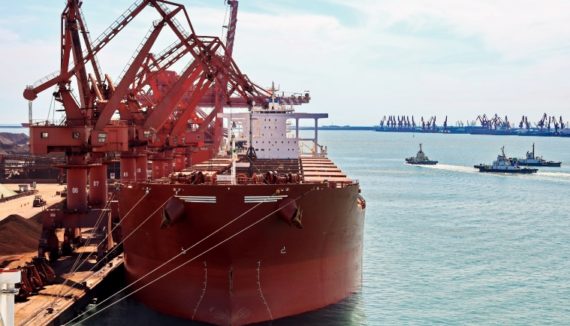On September 26, 2024, maritime industry professionals from across the world gathered in Copenhagen for an afternoon of discussions, networking, and knowledge sharing hosted by Veson Nautical. We focused on innovation and sustainability in maritime shipping, and brought together industry experts to explore how technology and evolving regulations are shaping the future.
The key aim of the event was to help Veson clients meet the growing range of challenges they are facing at a time of heightened uncertainty and ambiguity in maritime freight. In addition to the core focus on sustainability, we also discussed evolution of the IMOS Platform and IMOS X, the modern experience built on the IMOS Platform, as well exploring AI-driven collaboration with Shipfix.
In this post, we’ll focus on our discussions on sustainability and FuelEU, recapping the key takeaways and next steps for Veson Nautical.
FuelEU Maritime: A Closer Look at Compliance and Strategy
With the January 1st go-live date for FuelEU rapidly approaching, pressure is increasing to finalize management strategies for thousands of in-scope vessels, many of which are owned and operated by Veson clientele. Compliance is one aspect, but the forum highlighted the urgent need for effective management processes too. FuelEU will soon become an embedded feature of all European voyages and effective compliance will require transparency, data management, and robust digital tools.
The regulation, which will be in effect from January 1, 2025, targets the greenhouse gas (GHG) intensity of fuels used on board ships. Companies must monitor and report emissions, including CO₂, CH₄, and N₂O, as well as fuel consumption and energy efficiency measures. FuelEU’s Well-to-Wake (WTW) approach will set a new benchmark for environmental reporting, influencing the adoption of alternative fuels.
Discussions among the delegates varied, but there were some common themes. While most shipping companies submitted management plans by the deadline, uncertainty remains about the best way of dealing with FuelEU in the contract workflow. This uncertainty is echoed in the development of contractual clauses around FuelEU, which are still in the works. Most agreed that the predominant approach to compliance as we enter 2025 will be to manage an internal pool. There was also much discussion around biofuels, be it how they might be priced in the market or how to manage these operationally and commercially within a voyage.
During the forum, attendees also participated in live polls, offering some useful insights into how the maritime community is preparing for the FuelEU regulation:
- How prepared is your organization for FuelEU Maritime?
- Somewhat prepared: 71.05%
- Very prepared: 18.42%
- Thought about it but haven’t acted: 7.89%
- Not at all, waiting it out: 2.63%
- What are your predominant compliance strategies?
- Mix of all: 57.89%
- Pooling: 18.42%
- Biofuels: 13.16%
- Unsure: 5.26%
- Pay penalty: 5.26%

These results reflect varying levels of preparedness, and the predominantly mixed strategy approach to compliance.
Streamlining FuelEU Compliance with IMOS
One of the keynote presentations of the day highlighted IMOS Platform enhancements aimed at simplifying FuelEU compliance. The standout tool introduced was the FuelEU Calculator, which offers a comprehensive solution for calculating penalties, tracking compliance balances, and supporting operational decisions across individual voyages and entire fleets.

Available on both Estimates and Voyages, the FuelEU Calculator generates compliance metrics such as Compliance Balance, FuelEU Penalty, and Total Energy Consumption, helping companies anticipate regulatory impacts and optimize fuel selection.
IMOS Platform users can learn more about the FuelEU Calculator and how to use it in this help center article.
Additionally, Veson’s Report Designer enables fleet-wide compliance tracking, simplifying the management of multiple vessels with varying compliance needs. This advanced reporting functionality is crucial for companies to meet FuelEU’s stringent requirements and demonstrate sustainability efforts.

Existing IMOS Platform features and benefits for FuelEU:
- Penalty Calculation and Forecasting: Real-time calculation of potential penalties based on factors like fuel type, voyage distance, and GHG emissions.
- Well-to-Wake Emissions Tracking: Incorporates comprehensive WTW emissions data to provide a holistic view of environmental impact.
- Enhanced Reporting and Monitoring: Compliance metrics can be reported at the vessel or fleet level, helping operators gain insight into compliance status across different voyage scenarios.
The Road Ahead
With the FuelEU regulation set to take effect soon, shipping companies now need to solidify the processes and day-to-day management strategy for embedding FuelEU into their workflows. Veson Nautical’s IMOS Platform will not only facilitate adherence to FuelEU but will also allow organizations to gain a competitive edge by integrating sustainability into their operations.
We are diligently focused on building solutions around the challenges of biofuels, dual fuels, invoicing, and more, and we are hosting a webinar to share an update on our developments.
Due to global demand, the FuelEU webinar will be available on two different dates and times:
With ongoing investments in class-leading solutions, Veson’s IMOS Platform is set to remain at the forefront of regulatory compliance, helping maritime businesses turn the challenge of FuelEU into an opportunity for sustainable growth.




